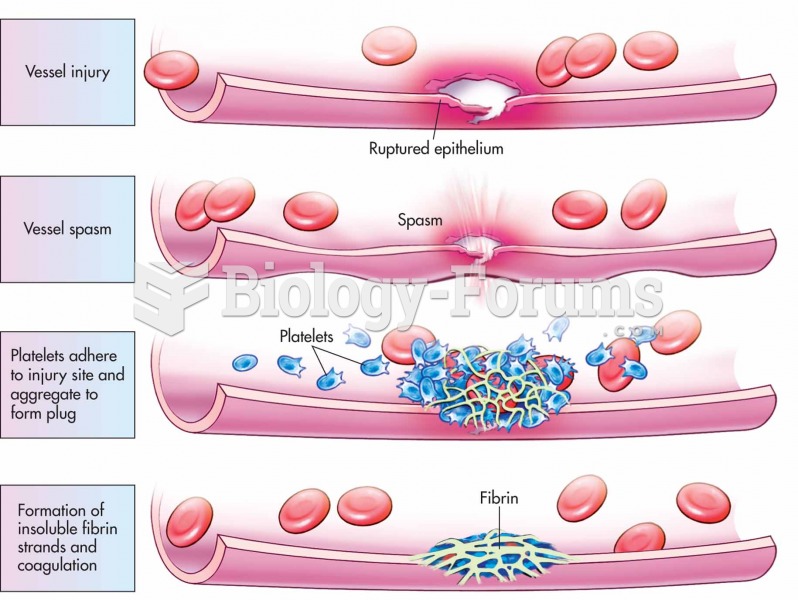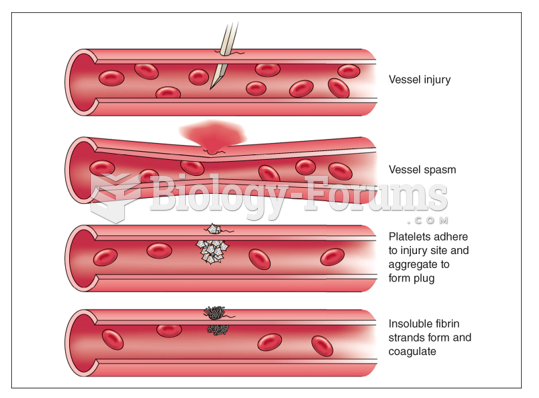|
|
|
In 1844, Charles Goodyear obtained the first patent for a rubber condom.
Studies show that systolic blood pressure can be significantly lowered by taking statins. In fact, the higher the patient's baseline blood pressure, the greater the effect of statins on his or her blood pressure.
The first oncogene was discovered in 1970 and was termed SRC (pronounced "SARK").
Your skin wrinkles if you stay in the bathtub a long time because the outermost layer of skin (which consists of dead keratin) swells when it absorbs water. It is tightly attached to the skin below it, so it compensates for the increased area by wrinkling. This happens to the hands and feet because they have the thickest layer of dead keratin cells.
If you could remove all of your skin, it would weigh up to 5 pounds.







